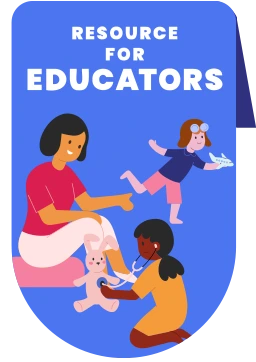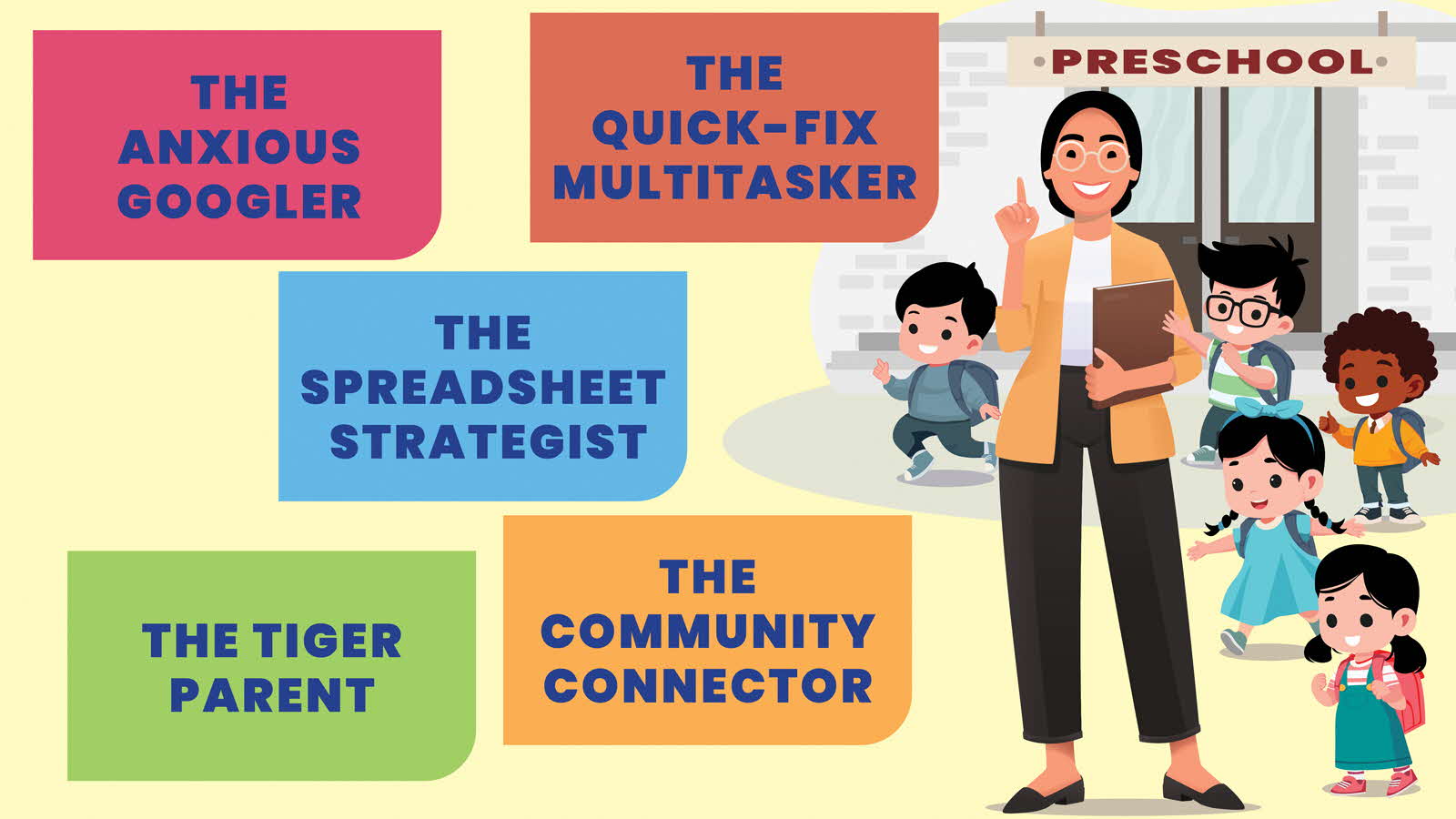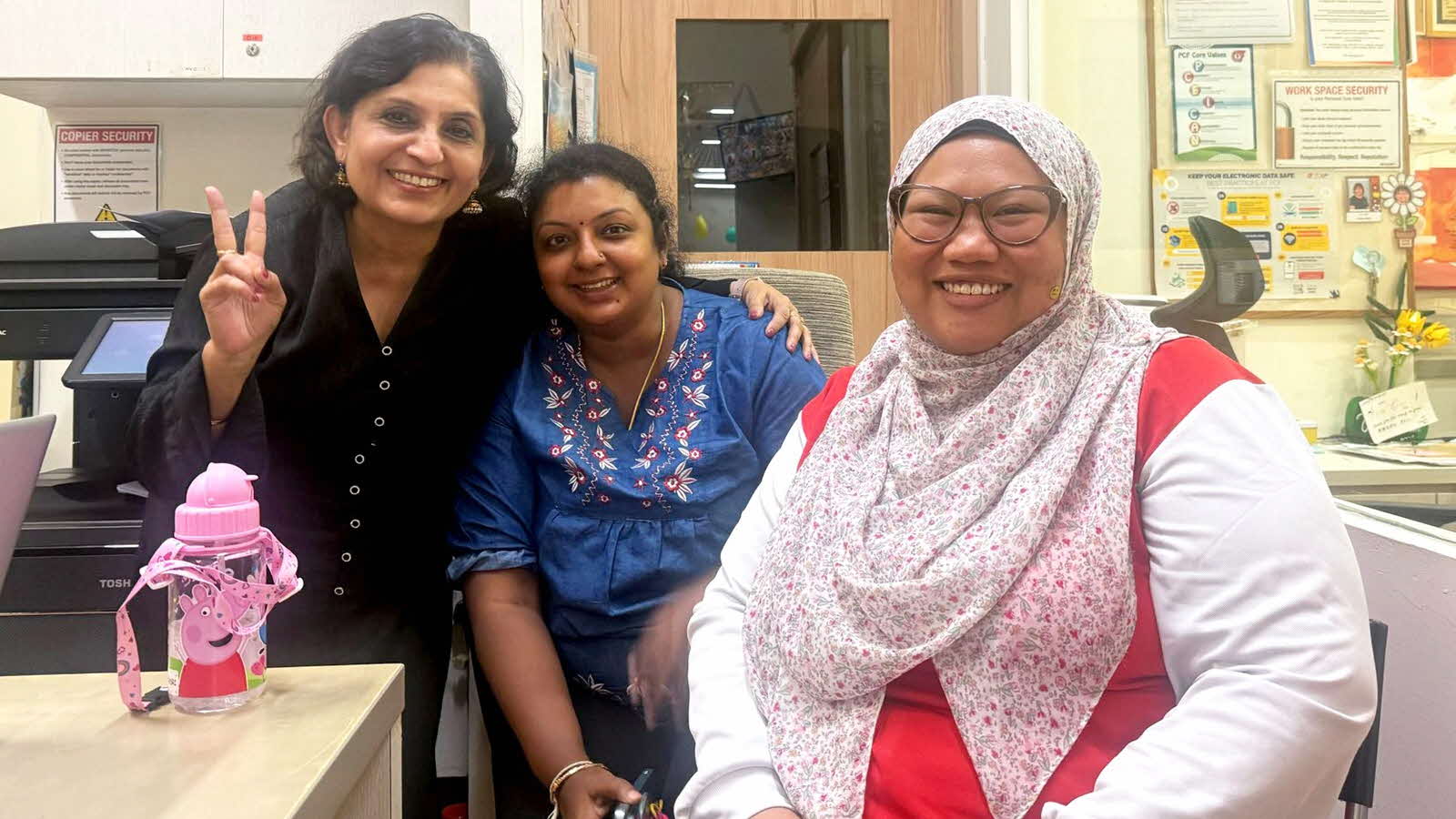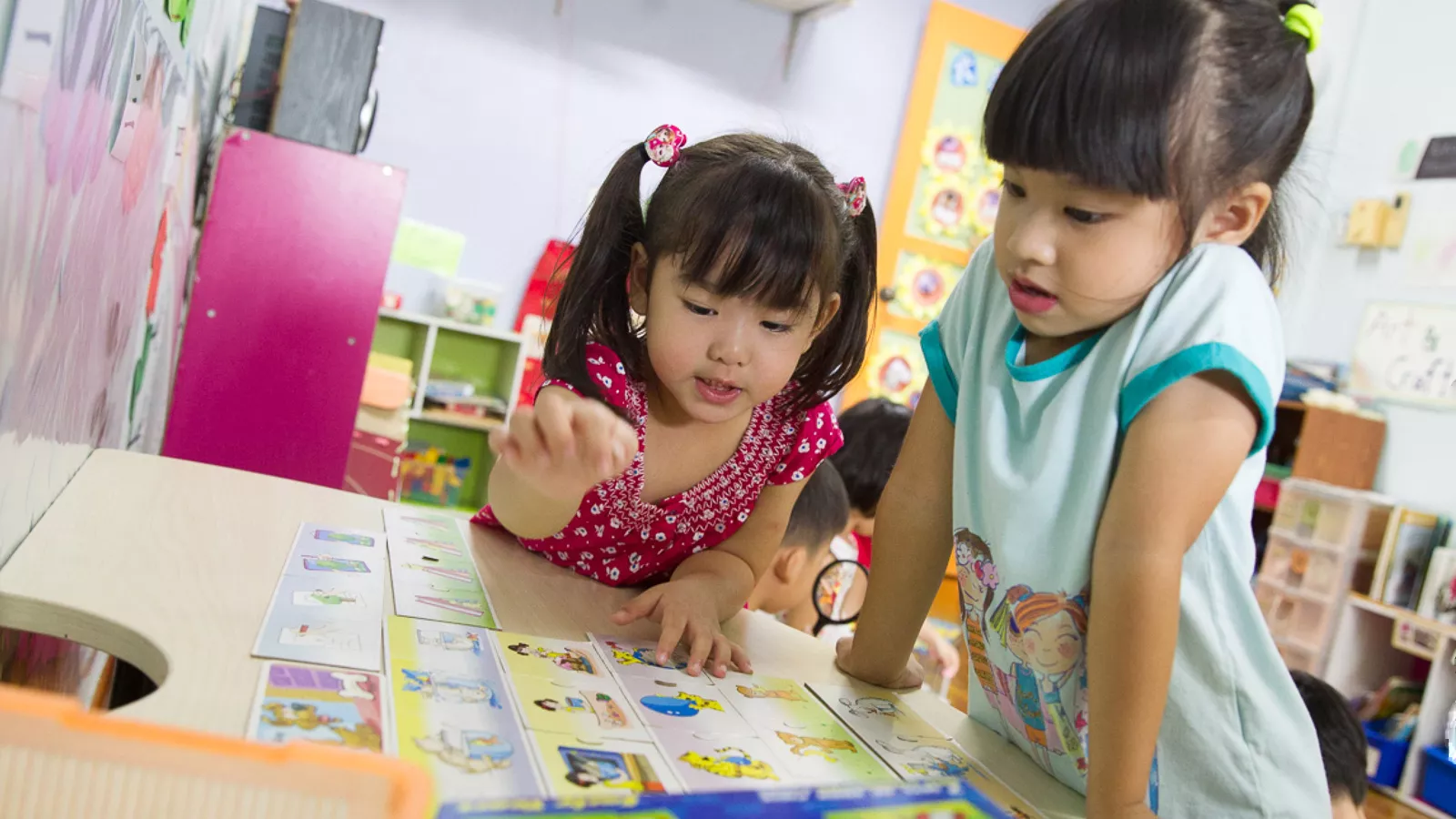At Pre-School By-The-Park @ Evans, parents are welcome to drop by any time to observe classroom activities, chat with educators, or join in activities and events with their children. This open-door policy fosters strong relationships with families and promotes a culture of collaboration — a key factor that contributed to the preschool winning the 2024 ECDA Outstanding Centre for Teaching & Learning Award.
“We want children to know that their parents are interested in what they’re doing in preschool and engaged in their learning,” says centre leader Ms Tan Yi Lin. While her team was initially worried that an open-door policy might interrupt the flow of the class, it has had the opposite effect — children are proud to share what they have done in preschool that day, while parents gain insights into their children’s learning and progress.
Ms Natalie Goh, whose three-year-old son Jordan attends the centre, can attest to that. Some activities she and her husband have taken part in with Jordan include introducing their family’s pet chicken during Show & Tell, playing with paint during ‘Mess and Make’ art sessions, and going on field trips together. “In our chats, Jordan happily recounts his experiences of having us in preschool with him,” says Ms Goh.
The couple also leaned on educators for support in dealing with Jordan’s challenging behaviour after his little brother was born. “For the first few months, Jordan resisted going to preschool, and we often stayed back in the mornings to have breakfast with him and his teachers,” recalls Ms Goh. “I am grateful to Yi Lin for listening, empathising and suggesting ways to help him during this transition.”

MULTIPLE TOUCHPOINTS, RICHER LEARNING EXPERIENCES
During daily drop-offs, parents are welcome to stay for breakfast and enjoy family playtime before the school day begins. At pick-up time, it is not unusual to see parents engaging in art activities with their children before heading home. “Even short sessions can have a positive impact,” notes Ms Tan. “As parents become more comfortable in the preschool environment, they begin to make plans with teachers and offer ideas on how they can contribute to lessons by drawing on their strengths and interests.”
 Letting families enjoy activities together before and after preschool brings joy to the children.
Letting families enjoy activities together before and after preschool brings joy to the children.
Parent involvement in the curriculum is actively encouraged, such as through the centre’s ‘Mess and Make’ art programme. The presence of parents during sensory painting activities boosts children’s confidence to express themselves creatively, while parents can pick up ideas on how to extend learning at home. “We’ve received feedback that parents appreciate the opportunity to bond with their children, connect with teachers and other parents, and exchange ideas on sensory play and early childhood development,” says Ms Tan.
 By participating in classroom activities, parents can get tips to continue nurturing their children’s curiosity at home.
By participating in classroom activities, parents can get tips to continue nurturing their children’s curiosity at home.
Another of the centre’s signature programmes is ‘Junior Food Detective’, where children discover various foods and learn how to prepare them. Educators engage the children by having conversations about what topic or food they would like to explore, and then invite parents to contribute ideas and hands-on activities. “Besides opening up communication channels, this empowers parents to play an active role in curriculum planning alongside educators,” says Ms Tan. “It fosters a deeper connection between home and preschool.”
 The ‘Junior Food Detective’ programme gets parents involved in planning and conducting preschool activities, such as making soba noodles with children.
The ‘Junior Food Detective’ programme gets parents involved in planning and conducting preschool activities, such as making soba noodles with children.
In our multicultural society, nearly every school term coincides with a different festival. These are valuable opportunities for children and parents to share their cultural traditions and practices through storytelling sessions and classroom parties. “It makes learning more inclusive and relatable, and gives families a voice in sharing their personal stories,” says Ms Tan. “Moreover, when children see their own traditions celebrated, it strengthens their sense of identity and fosters pride in their heritage.”
 On festive occasions like Deepavali, themed parent-child storytelling sessions and preschool celebrations strengthen families’ sense of community and belonging.
On festive occasions like Deepavali, themed parent-child storytelling sessions and preschool celebrations strengthen families’ sense of community and belonging.
Sometimes, the preschool organises excursions to places like the Singapore Botanic Gardens and St. John’s Home for Elderly Persons, where parents are encouraged to join in. When children see their parents enthusiastically making time for these activities, it sends the message that learning is not confined to the classroom but rather a continuous, joyful process that extends into everyday life. “Parents also tend to feel more relaxed and at ease in these settings, which often leads to open and meaningful conversations with educators,” adds Ms Tan.
 Holding events outside the preschool, such as festive picnics at Singapore Botanic Gardens, provides additional touchpoints for parent engagement.
Holding events outside the preschool, such as festive picnics at Singapore Botanic Gardens, provides additional touchpoints for parent engagement.
To ensure educators are skilled at communicating effectively with parents, Ms Tan arranges training sessions for her team. “We brainstorm ideas on how to help the more introverted teachers and role-play as parents,” she explains. “Through practice, they gain confidence and experience in identifying key moments for conversation and how to take that first step.”







